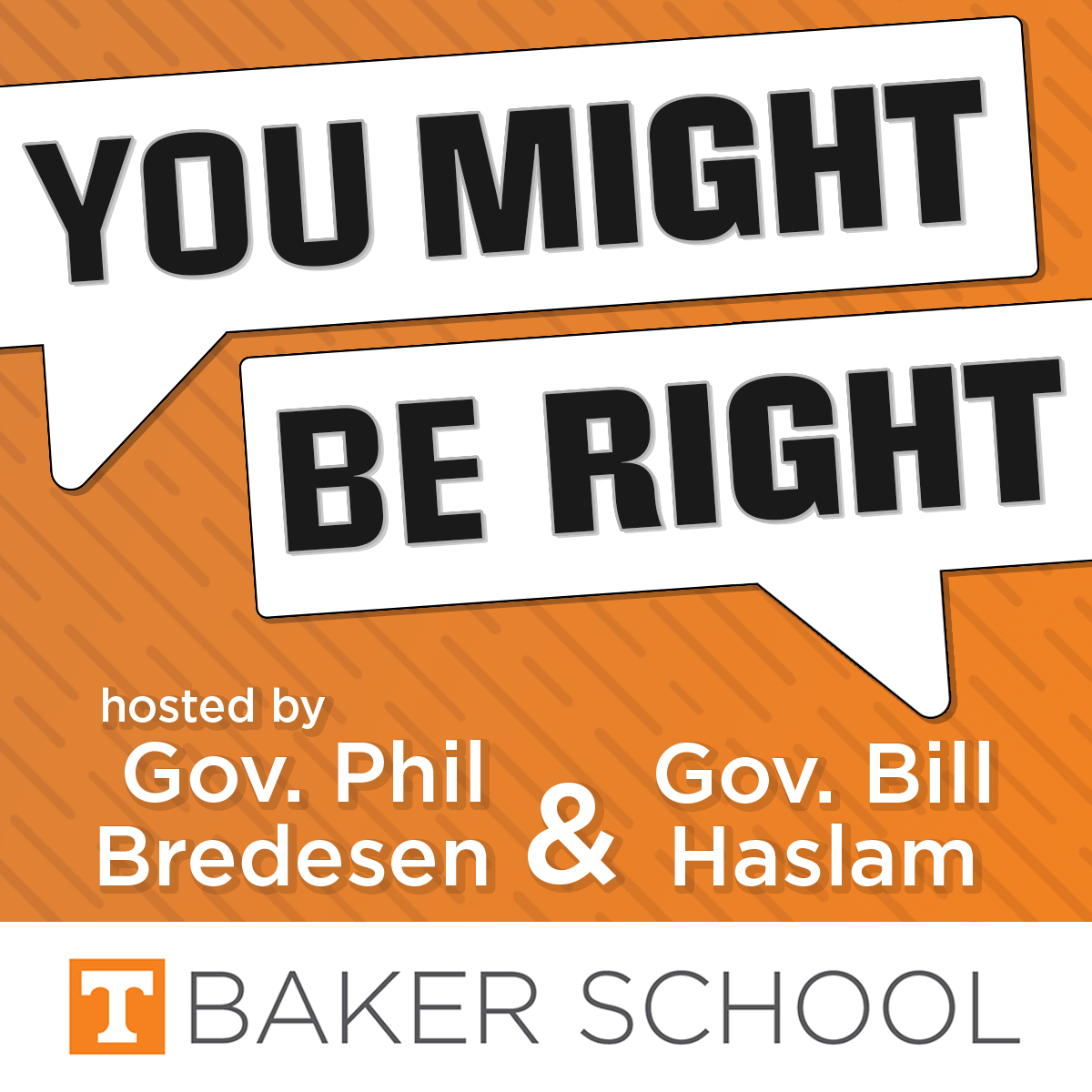What is the Senate Filibuster and Why Should We Care?
EPISODE 7: Former Tennessee Senators Lamar Alexander and Bob Corker joined former Governors Bredesen and Haslam for a special episode of You Might be Right, recorded live at the Baker Center in September 2022.
Use of the filibuster, a rule that prevents legislation and key nominations from advancing without the support of 60 senators, is a long-standing practice of the United States Senate. Former Tennessee Senators Lamar Alexander and Bob Corker joined former Governors Bredesen and Haslam to discuss how the filibuster works in practice, what they would change and why it matters.
Subscribe and follow You Might be Right wherever you get your audio content – including Apple Podcasts, Spotify, and Stitcher – to never miss an episode, or sign up for our email list to receive new episodes straight to your inbox each week here.
“The right to talk your head off”
Right out of the gate, Alexander and Corker offered very different definitions of what the filibuster is. Alexander, quoting Mr. Smith Goes to Washington, described the filibuster as “the right to talk your head off.”
“It simply says, to pass an important bill in the United States Senate, you have to get 60 people who agree out of 100, it’s time to stop talking and vote,” Alexander continued. “And they won’t stop talking until it forces a result that most senators can vote for. And therefore, most of the country can live with. Takes a long time to do that sometimes, but most issues ought to be decided by the mayor or the state legislature or the governor.”
Senator Corker offered his own definition of the filibuster, noting that how it is talked about today is a “revisionist description.”
“A filibuster is one senator, one senator standing up and saying, they object. Nothing having to do with talking. Nothing,” he said. “When I first got to the Senate…the filibuster was used much less than it is today. And what happened was the outside groups that score senators on how they vote learned that instead of scoring people on the final vote on a bill, let’s begin scoring people on the cloture vote. And so what happened is both sides of the aisle started using the 60-vote threshold really not to negotiate, not to conciliate, not to work out a piece of legislation, but to block legislation.”
“It’s not the 60-vote requirement that’s the problem”
Both Alexander and Corker noted that a change in behavior would be their preferred way forward but is highly unlikely. “I’d rather see senators have restraint, respect the fact that other people ought to be able to bring up an amendment or an idea, discuss it and vote on it,” Corker said. “I’ve just not witnessed that behavior while I’ve been there. And I don’t think we’re going to witness it anytime soon.”
Alexander agreed, noting, “It’s not the 60-vote requirement that’s the problem.”
“I’ve been waiting 20, 25 years for a change in behavior, and I don’t think there is going to be one,” he told Bredesen and Haslam. “So, I think there are some changes in rules that are necessary not to eliminate the filibuster, but to reduce the delay.”
What would he change? Alexander outlined three recommendations.
“One, eliminating the motion to proceed to legislation, that would remove a week from things,” he told the governors. “You could get rid of what’s called the intervening day. Once you make a motion, you’ve got to wait a day to vote on it. There’s no need to do that. And three, you could shorten the period of time after you decide to cut off debate, to debate the bill. Those three things would mean you could take legislation up much more rapidly. But in the end, you’d still have to get 60 votes to cut off debate before you could vote on the bill.”
Subscribe and follow You Might be Right wherever you get your audio content – including Apple Podcasts and Spotify – to never miss an episode, or sign up for our email list to receive new episodes straight to your inbox each week here.

Join the conversation on Twitter by following @UTBakerSchool, @PhilBredesen, and @BillHaslam.